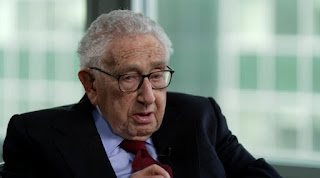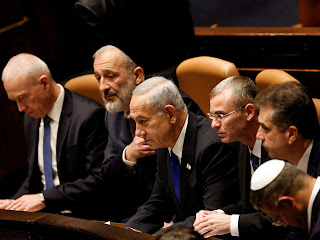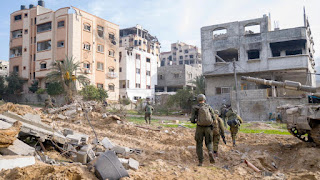In Putin's net: humanitarian challenges in Syria
On Monday 6 February 2023 at 13.25 local time a
disrupting earthquake of 7.8 magnitude devastated with twenty seismic shocks
the regions of central and eastern
Turkey and the Syrian border. This has been, in the words of Erdogan, the worst
humanitarian and natural catastrophy since 1939, when another quake invested
the State, provoking 33000 dead and 100000 wounded people.
This time the tragedy spikes higher numbers:
34000 dead people are recorded so far, half a million people in need according
to the WFP and 141000 rescue personnel digging into the rubble, especially the
white helmets, working in 10 provinces and the Who warns a second disaster as
cold winter sets in. Almost uncountable the homeless and the Internal Displaced
people, especially in Syria where the aftermath of the earthquake add up to the
IDPs of the civil war. Thus, the data are dreadly alarming.
What will happen thereafter is unlikely to be
foreseen, both in Turkey where next June Erdogan will face the presidential
elections, and much will be depending on the way he’ll succeeding in handling
this crisis, and in Syria, internationally isolated and enjoying the support just from Russia and
Iran.
The scenario
is taking a bud turn for the humanitarian operations in this last
country, as the main international organizations, UN and EU , other than the
USA while releasing substantial financial aids to Turkey, are almost living
Syrians to their destiny, being the country under severe sanctions.
Syria, in effect, fundamentally divided in
three regions (the northwest occupied by the rebels, a northeast under the
turkey influence and the rest of the country pro Assad regime) is coming from
an history of twelve years of civil war against its sanguinary president that is succeeded anyhow to exterminate Isis forces
in its womb, although few sacks of terrorist groups still remain. The country is living a deadlock now worsened by the
earthquake. The external aids which have been provided are merely symbolic and hard to reach civilians also being
debated the points of entry of the humanitarian assistance, ( Balabab or
Damasco) and it’s internationally more
and more left alone , having been kicked out also by the Arab League in 2011.
In addition to that, on its territory it’s possible assisting to terrible fightings
between international influencers and
allied, as the Israeli attacks against Iranian bases on its lands.
Therefore a nation torn apart by a conflict
both internally and externally, not exempted by terroristic attacks, fighting
for supremacy aiming to share the area of influence in the Arab world and an
economic and sanitary standoff arrived
to a collapse see a large array of civilians trapped in a no escape
situation et find hard to survive, having to face with burocratical and
political blocks to the arrival of humanitarian aids.Then the world keep on
watching , powerless, the development of a humanitarian crisis with no
precedents in which political decisions get there upper hand and in which have
been given priority on the humanitarian
matter and the protection of human rights, relying just in Putin’s Russia,
whose forces by the same way are at their lowest, and recently condemned by the
international community as the perpetrator of crimes against humanity for the
Ukraine vicissitudes. Thus in the near and the far east it’s crystal clear a
degeneration of superpowers, as well as nationality of medium and small caliber
that brings to collapse, entangled in a series of sanctions, that put at risk
the possibility of profitable and optimistic diplomatic relations, plagued by
the catastrophe of the war, by natural calamities and by an economic dependence by the energetic factor.
Here we are, thus ,that if to the social and
political elements we sum up unforeseenable factors, such as for example un
earthquake of long range or other environmental disasters, these autoritarian
regimes show off all their vulnerability and lack of capacity to raise themselves
up from the bottom, not forgetting that the president Assad, although the
urgence, launched a first call for help to the UN just the 13 February, leaving
its population kept on being exterminated, remaining in the meshes and under
the shadow of a complex intertwining of difficult and ambiguous relations on
the International panorama.





Comments
Post a Comment